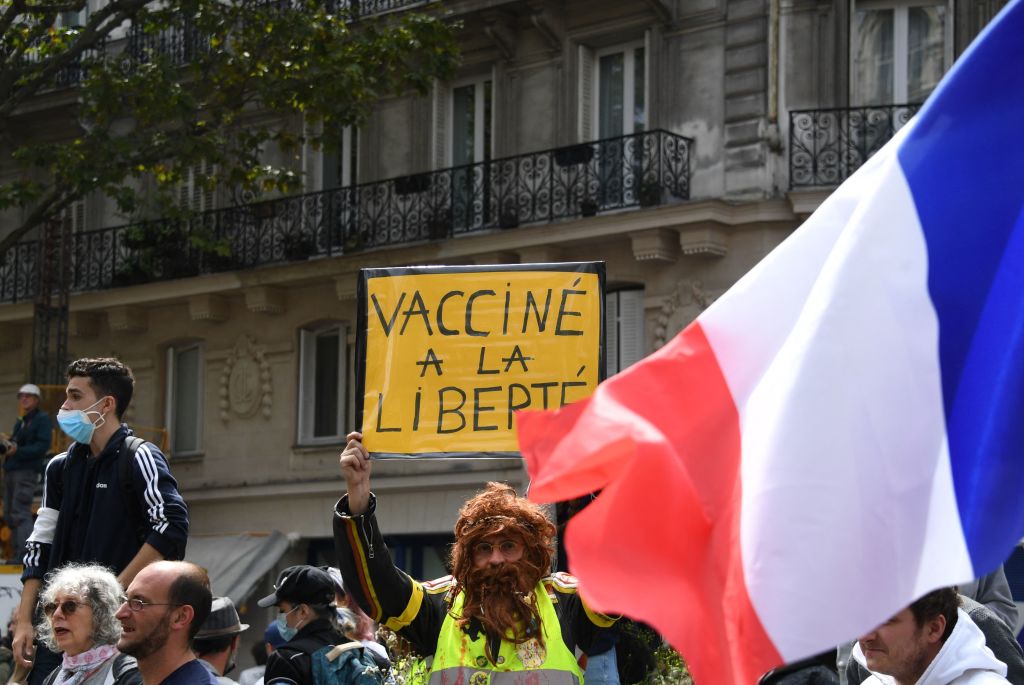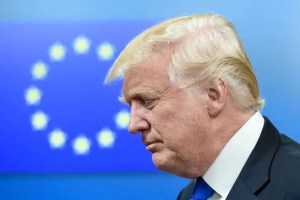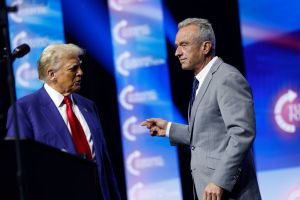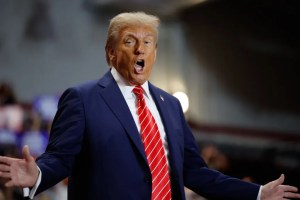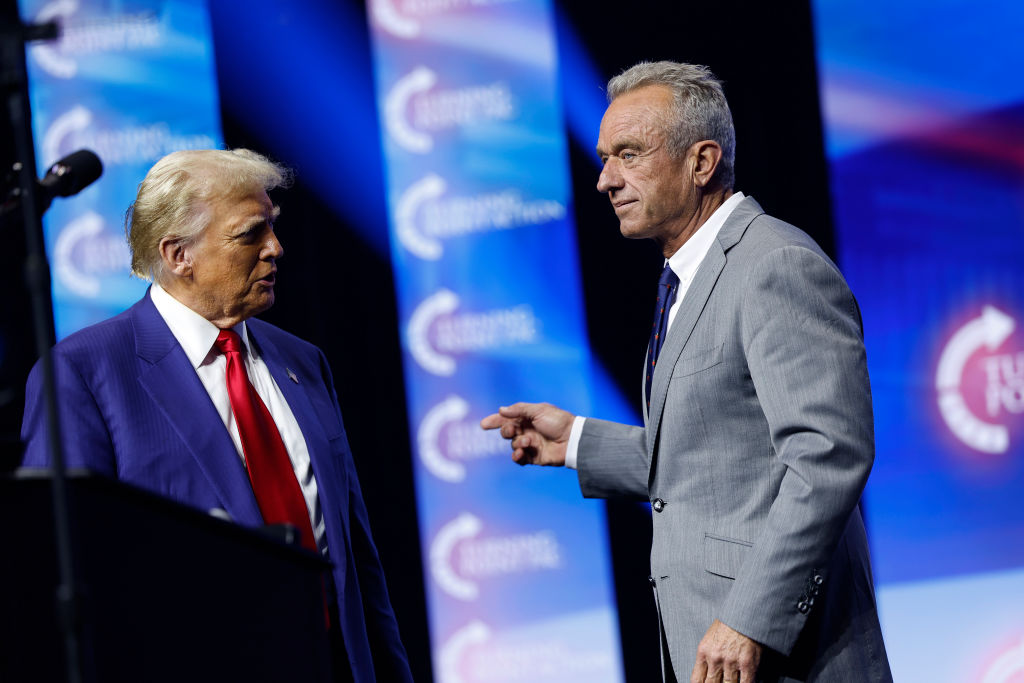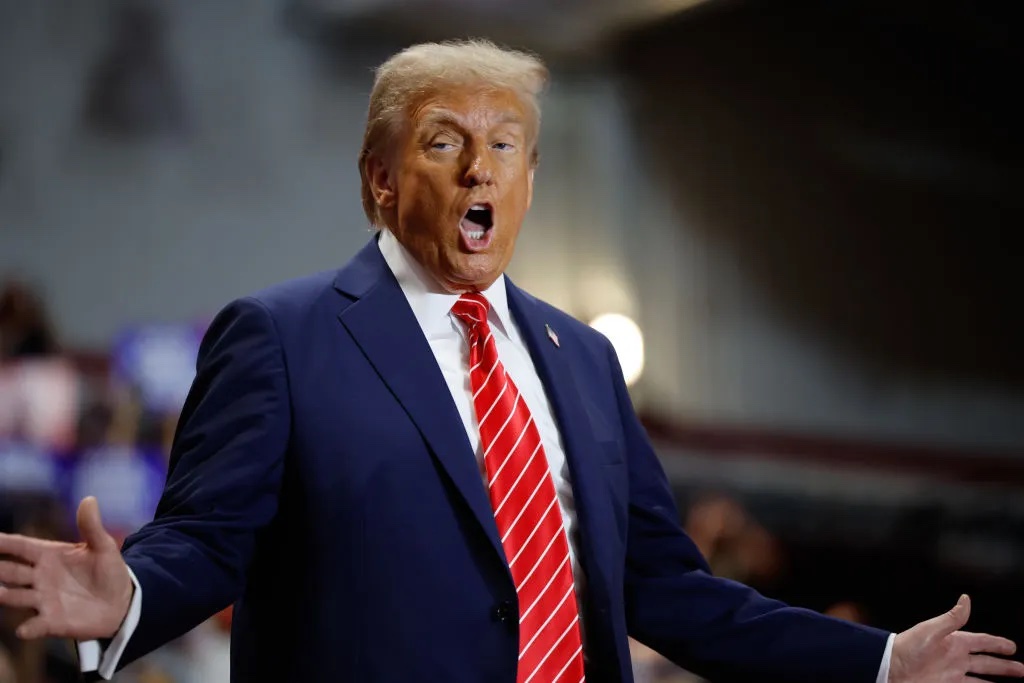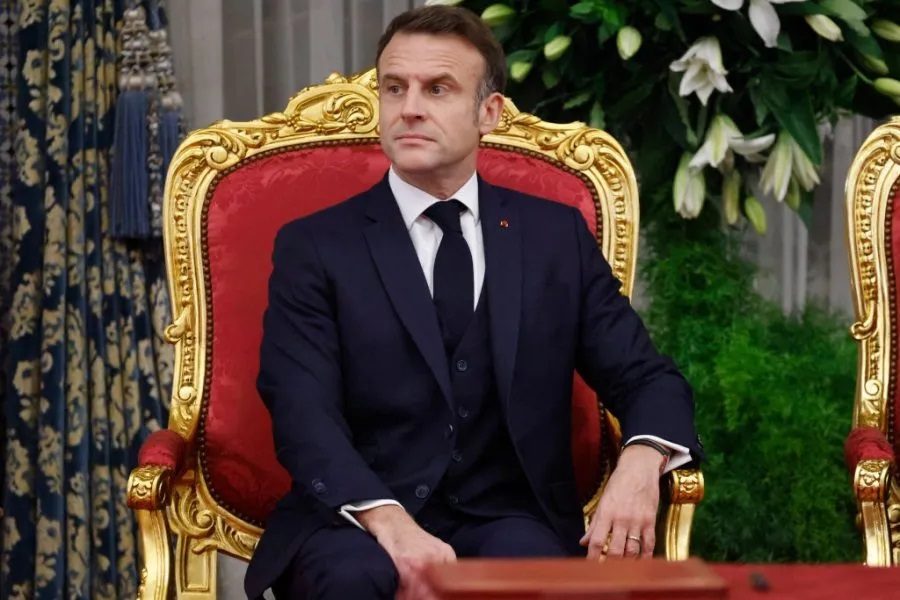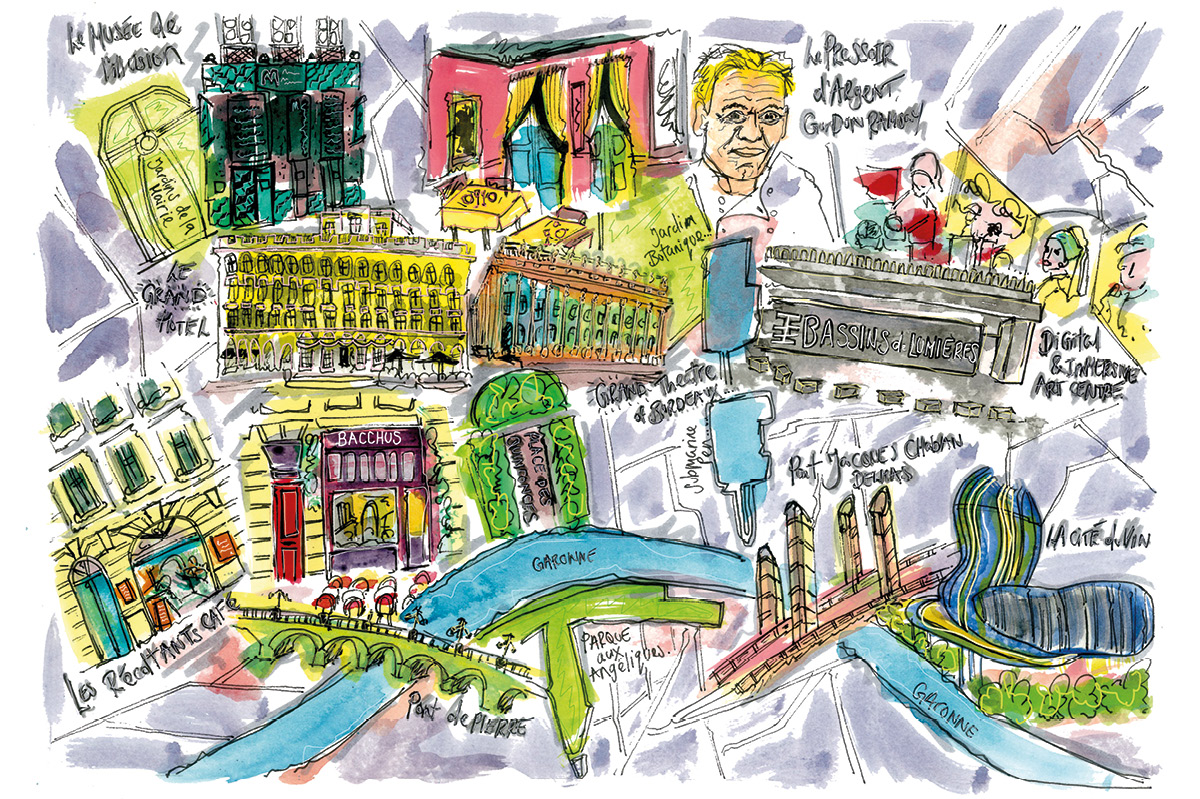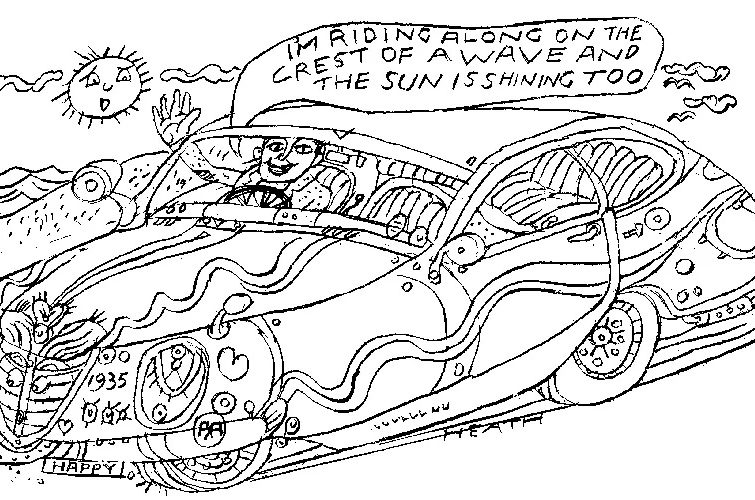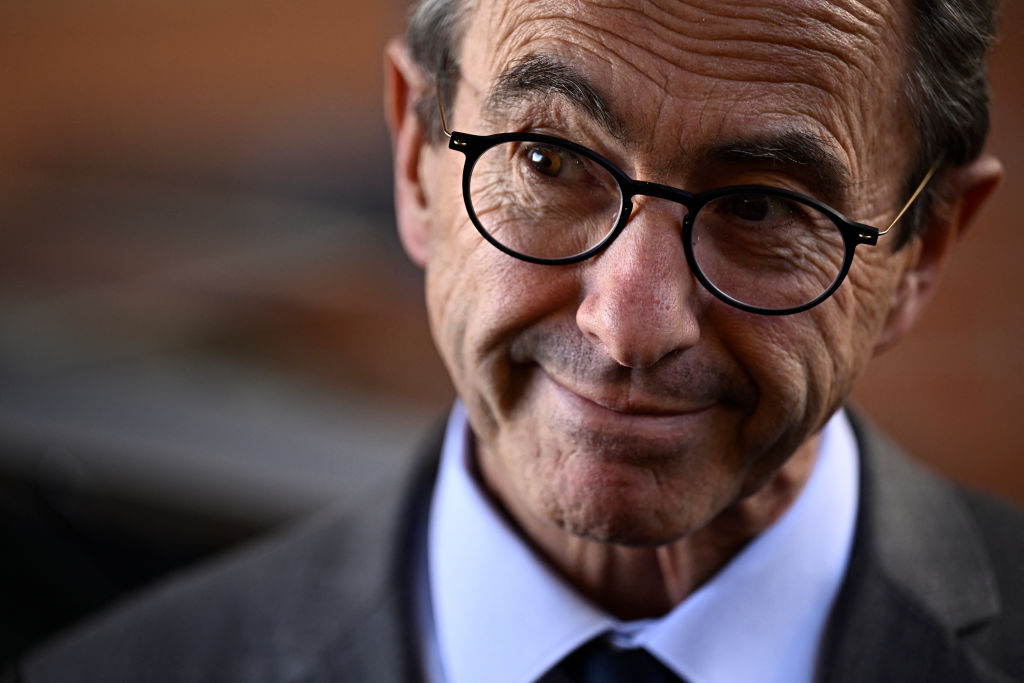Saturday was what is known in France as the Chassé-croisé, the busiest day of the year on the roads, when those who took their vacations in July return home and those who chose August depart. By lunchtime there were 625 miles of traffic jams on the roads. The thoroughfares of many cities were also blocked, but for another reason. For the third consecutive Saturday, thousands of people marched to protest against the introduction of the government’s COVID passport.
Almost a quarter of a million people took to the streets in 180 demonstrations, according to the government. These numbers are disputed by the organizers, who claim they are wildly conservative. But whatever the exact figure, it was a phenomenal number of demonstrators for the final weekend of July.
Two weeks ago, according to the government, approximately 114,000 marched; and last week it was 161,000. To break the 200,000 mark is an indication of how the protest movement is growing.
The demonstrators come from all cross-sections of society, and are overwhelmingly passive. The march I witnessed in Paris on Saturday featured an impressive array of fancy dress, dozens of children, a lot of dancing, and scores of placards relaying various messages, none of which were complimentary to President Macron.
What was also notable was the low-key police presence. I saw none of the riot squad, only the regular Paris police, some of whom chatted happily to the demonstrators as they filed past.
Unfortunately the coverage in much of the British media has reflected none of this spirit. The headline on the Sky News website on Sunday morning was ‘Vaccine passport critics clash with police in Paris.’ Underneath was a brief video clip of a few angry demonstrators confronting riot police at the Place de la Bastille. This was a small demo, attended by many who claimed to be gilets jaunes, probably the same troublemakers who hijacked the original movement in 2018 and turned a protest against a green fuel tax into an excuse to square up to the police. According to the Minister of the Interior there were 19 arrests at Saturday’s nationwide protests, 10 of which were in Paris. The French police have been subjected to many days of appalling violence in recent years, but Saturday was not one of them.
The coverage in the Daily Mail and the Sunday Times of London was also reductive. ‘Thousands of anti-vaxxers march through Paris,’ was the headline in the former, while the latter went with: ‘Far right and gilets jaunes find common cause in France’s antivax carnival.’
The rallies across France were indeed marked by a carnival atmosphere, but the majority of those in attendance were not from the far right or the Yellow Vest movement and nor were they opposed to the vaccine. A minority are — or they oppose the vaccination of children — but most gave up their Saturday to defend the principles of Liberté, égalité, fraternité.
The French media made the same mistake when the protest movement began. Most have now toned down their hostile coverage, acknowledging that the principle motivation for demonstrators is opposition to the introduction of a COVID passport that they claim is discriminatory.
The left-wing newspaper, Liberation, had a reporter among the crowd at the protest in Toulouse, and one of those interviewed was Jean-Christophe Sellin of the Left party, founded in 2008 by the far-left politician Jean-Luc Mélenchon. Asked if he was uncomfortable protesting alongside those from the other end of the political spectrum, Sellin replied that ‘there is no reason they should not be in the procession and it doesn’t prevent me from demonstrating’. Another in the crowd, a veteran of championing left-wing causes, admitted it was ‘bizarre’ to be marching shoulder to shoulder with Catholic fundamentalists.
According to political analyst Vincent Tournier, anti-fascists and nationalists have joined forces to resist what he described as ‘the inception of a form of privilege: in creating two categories of citizens, one calls into question the civic culture that’s founded on a deep-rooted attachment to equality’.
This camaraderie is strengthened because both the grassroots left and right believe they have been abandoned by their political masters, few of whom have kicked up a fuss at the imposition of the passport. The muteness of most unions has also been noted. As a consequence there is a perception among the people of a growing ideological chasm between themselves and a privileged elite.
There is also the emergence of a troubling fissure between generations. A recent poll found that half of the population ‘understands’ why people are protesting, a figure that rises to 69 percent among the 25-to-34 age group. In contrast, three quarters of over 65s don’t understand why people are so upset at the prospect of being barred from drinking in cafes and eating in restaurants, forbidden from dancing in nightclubs and watching soccer matches, suspended from their job, banished from their rugby team or, in the words of Jean-Michel Blanquer, the minister of education, ‘ousted’ from the classroom.
Macron’s COVID passport is currently being scrutinized by the constitutional council, which has the power to order the government to make changes. It will announce its ruling on Thursday. If the council raises no objections, the passport will be implemented in its entirety on August 9.
Macron insists it’s all in a good cause, but more and more of his people disagree. For the moment, the carnival atmosphere predominates, but chaos and conflict could sweep the country as the reality of the COVID passport begins to bite.
This article was originally published on The Spectator’s UK website.



